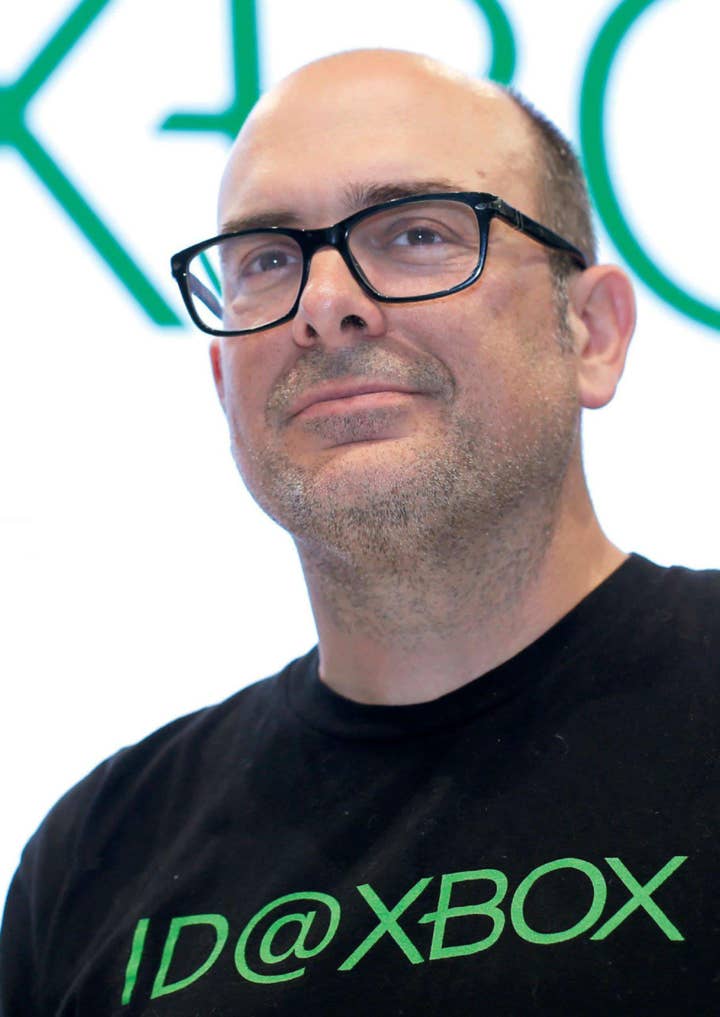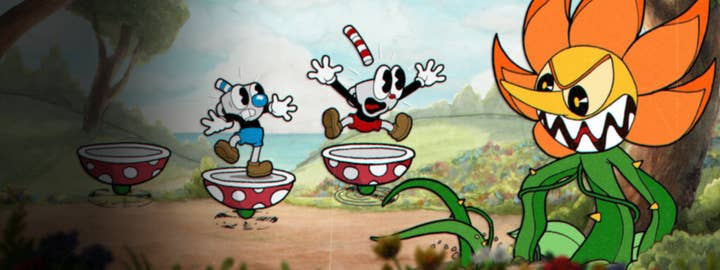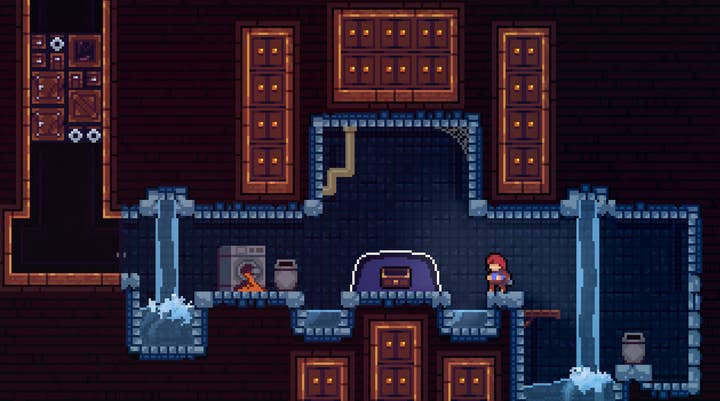Xbox adds almost 300 indie games in a year
“We try to never say the word indie internally,” says ID@Xbox director
The ID@Xbox programme is approaching its 800th title, less than 12 months since it hit No. 500.
ID@Xbox director Chris Charla revealed the figure in an interview with GamesIndustry.biz, ahead of his talk at this year's GDC in San Francisco.
ID@Xbox is the name of Microsoft's initiative to attract and support independently-made games on Xbox One and Windows 10. It was announced in August 2013 with the first game arriving in April 2014. The first 500 took just over three years to arrive.
Although the number of games hitting the platform pales next to the number of games arriving on Steam and smartphones, it highlights just how fierce the competition is becoming on console for indies.
"For developers, discoverability is always going to be a super important issue," Charla acknowledges. "It's something we talk about all the time in terms of when to release a game, when to announce a game, how to announce a game, how to show a game before a release. That's a situation that's constantly changing. The formula that worked five years ago, or even 18 months ago, might not work today. So we just have to tell developers what the latest trends are; whether it's announcing super early, or announcing closer to release. So we just share everything we know."

The 'when to announce a game' conversation is an interesting one. It hasn't been unusual to see ID@Xbox games take years to emerge, and to appear at multiple shows over and over again. Lately, however, the gap between announce and release appears to be shortening. On Nintendo Switch, in particular, there's been a rise in indie games getting announced and released within a week. Is that the current thinking?
"Announcing a game and releasing it a week later is not our current advice," Charla tells us. "What we see is that there is a relationship between day one sales and when you announce a launch date. Our current advice is to announce a launch date as early as they can. On Xbox, you have to be in for certification before you announce a launch date, so it's usually less than two months. But we advise developers to spend that time talking about a launch date. Announcing a game that launches in a week... if one person does it, then that becomes super novel and it will probably get a lot of attention. But if everybody did it, I think it would be really hard.
"What we do is let people know what the current trends are, so they can follow it, or try and get ahead of it, or just totally buck it."
Cuphead is one game that actually benefitted from a long development story, Charla explains.
"When Cuphead was first announced, the conventional wisdom was to announce your game as early as possible and talk about it forever. And so they did. Then during development, the conventional wisdom changed. But they had already announced it, so what do you do? You have to stick with it. But that game was so unique and special, that actually announcing it really early ended up paying off. Lots of people got to see it over the years while it was in public development. People got the chance to play it at different shows and got really stoked on it. So when it finally launched on Xbox and PC, it just did gangbusters."

Charla says Xbox is always trying to make discoverability easy on its platform. He reels off some stats to show us just how successful indies are with ID@Xbox: over $1 billion has been generated since the programme began, and that four billion hours - 150,000 years - is the current playtime of ID@xbox titles. "People are definitely finding the games," he says.
Yet discoverability is a continual battle. And that's where new initiatives like Game Pass come into play, which gives gamers access to a large number of titles for a fixed monthly fee.
"There is a tonne of ID@Xbox games in [Game Pass] right now," he says. "You get a little bit of what I call the Netflix documentary effect. You start Netflix, you watch something, and then Netflix is like: Why not watch this documentary about the font Helvetica? Suddenly, you know more about Helvetica than you ever possibly should, and it was an awesome way to spend 90 minutes. Some smaller games can really benefit from being in Game Pass for that. The game is available to download at no extra cost. Maybe it is a small download, so people check it out and have a great time. They then tell their friends and so on."
Increasingly, developers are turning to publishers to help get their games some attention. Charla doesn't directly recommend that route for studios - he doesn't believe that developers 'going it alone' is a dying art - but he does acknowledge that the growth of the indie publisher is a good thing overall.
"If a developer just wants to publish it themselves, well that is what our programme is for," he says. "I wouldn't say we prefer it one way or another; it's just however developers want to work. Some devs find out that they don't want to do all the publishing work. So we advise people that if they think organising their own promotions are scary, then that is what micro-publishers are for."
"Publishers are now having to sell themselves to independent developers. So if you're an independent developer in 2018 versus 2007... life is just a lot better"
He continues: "The thing that is really cool versus ten years ago, is that the developer/publisher dynamic has completely changed. There used to be cases where there would be a power imbalance. Developers were in a tough position. Today, things are certainly equal, if not the opposite. Publishers are now having to sell themselves to independent developers. So if you're an independent developer in 2018 versus 2007... life is just a lot better. You have that choice to do it yourself, so if you have a great community person and you always wanted to figure out how the business side of the industry works... then great, go for it, you can.
At the same time, if you're a developer that just wants to work on this game and get someone else to handle this other part, your options are just so much broader. And so much more fair for them today than they were ten years ago. The rise of the indie publisher, or micro-publisher, it has been a super positive development in terms of giving independent developers even more options."
Charla is very dismissive of the conventional indie thinking that has dominated some of the headlines on GamesIndustry.biz in recent months. He doesn't think developers need indie publishers, like some will tell you. He also doesn't believe all indie games need to invest in higher production values to get noticed. Those trends are happening, but he says there's always plenty of contradictions.

"We're seeing lots of things happening simultaneously," he explains. "On the one side, you can say that the desire for higher production values is always there, and that is going to increase costs. We have seen that across generations and inside of generations. At the same time, players are always looking for something different. The second you think everything is all about polish, someone then comes out with a really spare, simple side-scroller and everyone finds that refreshing.
"There is definitely motions towards higher production values, and things that drive costs up. But at the same time there is always desire for other things. People have been predicting the death of the lone developer working in their bedroom since the 1990s. But they're like prime numbers; there is always another one that is going to come out and surprise you."
"We try to never say the word indie internally. We just talk about developers and games"
He adds: "One of the great things that the freedom of digital distribution brings us is that we get to see a lot of successful business models happening. So you have the lone developer who is making a game, and can work on a game for a couple of years and can make $500,000. One developer, two years, $500,000. That's not a bad way to live your life.
"And then we also see teams coming together of different sizes. Teams that look like Super Nintendo teams, so are six or eight people. Or maybe PlayStation teams, where it is 12 or 15 people. Then Xbox 360-sized teams, or Xbox One-sized teams that are 50 people or more. Those developers will all need different levels of success, but the market is available to provide those different levels. We are a hit-driven industry, but there's no longer just one paradigm for what success looks like. It's no longer about selling a million discs to be successful."
Indeed, success is subjective. Perhaps gathering all these games under the one 'indie' heading has - far from simplifying things - made things more complicated. We in the media use 'indie' to describe everything from a side-scrolling puzzle platformer to Hellblade. Yet what the former needs to sell in order to be successful is very different to the latter. And the advice Xbox might offer one of those companies would be quite unlike the other.
"We try to never say the word indie internally," concludes Charla. "We just talk about developers and games. Maybe because we don't put definitions on things, we don't stress about that stuff. We just work on making it easy to get games on the platform, knowing that is what is going to give players the biggest variety. We are pretty confident now that the market place we have on Xbox One is definitely a sustainable place for developers to find success."
